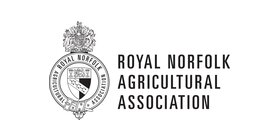Report Synopsis
How to counteract the agronomic and market challenges facing the UK potato industry
Rationalisation across the potato growing sector has occurred due to the macro risks of growing and marketing potato crops. The risk and reward ratio has been unbalanced and has left potato farmers with a poor return on capital, with many exiting the industry since the turn of the millennium. Consumption of whole potatoes has also been in decline per capita as people trade into alternative carbohydrates due to cultural and lifestyle changes. UK potato production has failed to adapt to changing eating habits and, in comparison to other European nations, has a small potato processing sector.
To coincide with a shrinking UK market, the agronomic challenges of growing potato crops have increased. Pest and disease pressures have become harder to overcome through the revocation of plant protection products and the change in climate.
This study explored potato-growing practices across Northern Europe and North America to understand how businesses are addressing the macro risks involved with production. Although the structure of the sectors is very different across the two continents, many businesses face similar challenges.
Successful potato producers in the future must firstly identify what their risks are and develop long-term business strategies to manage them. To be successful, potato farmers will need to build relationships with customers to secure their end market, offering flexibility and aligning with their customer requirements. In turn, the UK sector must strive for greater self-sufficiency and put in greater measures that support the supply base. Ultimately, farmers will need to be paid fairly allowing sufficient margins, allowing for re-investment in infrastructure, equipment and, most importantly, people.
In a changing climate, potato production across the globe is going to become ever more challenging and growers will need to adapt by protecting their soils through wider rotations. Farmers will also need to implement measures to manage water more effectively. This will come from efficient irrigation systems and drainage infrastructure. Greater operational capacity to utilise tight weather windows to plant and harvest crops will be required. Variety selection and breeding will play a crucial role in farmers remaining prosperous. Plant breeders must deliver to the marketplace modern varieties that look great, taste great and have strong agronomic traits that reduce growing risks. With these challenges in mind, opportunities will arise for the best UK producers who have the skillset to adapt.
Harry Barnett
McDonald’s UK & Ireland

The Royal Norfolk Agricultural Association

